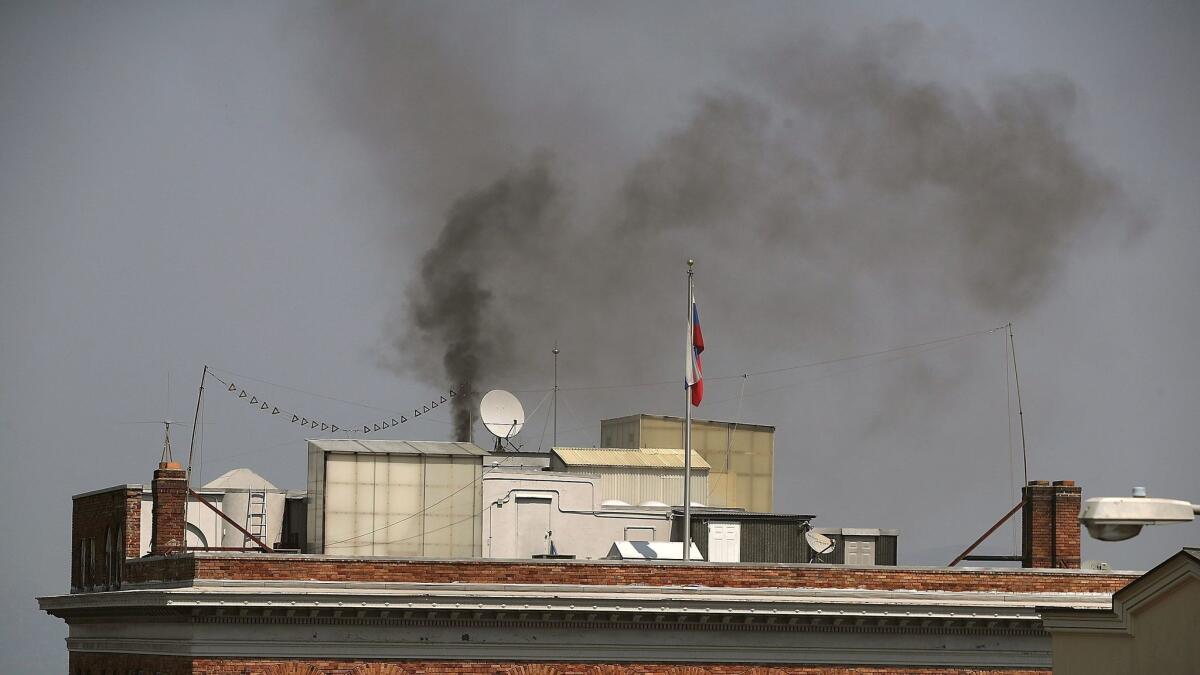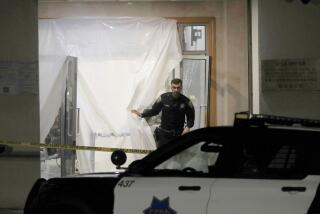Bay Area air regulators cite Russian diplomats for mysterious smoke over now-shuttered consular office

- Share via
Russian diplomats were cited this week for violating Bay Area burning restrictions after smoke was seen billowing from their consular office in San Francisco, a day before it was closed under federal order.
Regulators with the Bay Area Air Quality Management District do not know what diplomats were burning that produced the thick, black smoke on Sept. 1, but they don’t believe it was firewood, said agency spokeswoman Lisa Fasano.
The district’s air emission regulations prohibit residents from burning garbage or other materials in wood-burning fireplaces.
On Tuesday, Fasano said, the district sent a notice of violation to the now-shuttered consular office in the 2700 block of Green Street. She said district officials are hoping the notice will be forwarded to the diplomats’ new mailing address.
The Trump administration ordered the consulate’s closure a month after the Russian government ordered the U.S. to cut its diplomatic staff in Russia.
Russia had until Sept. 2 to close the office in San Francisco, the chancery annex in Washington and the consular annex in New York, the State Department announced last month.
As the diplomats prepared to leave Sept. 1, the column of smoke was spotted above the consular office.
The smoke was an unusual sight that day in downtown San Francisco, where temperatures reached a staggering 106 degrees, setting an all-time heat record for the area.
The smoke sparked concerns and triggered a call to the San Francisco Police Department. Firefighters determined the smoke was coming from a chimney inside the consular office.
Air quality inspectors also headed to the neighborhood and took several photographs of the smoke, Fasano said.
When the diplomats receive the notice, she said, they are required to reach out to the district’s legal team to settle the issue. If a settlement can’t be reached, the diplomats have the option of going to court, Fasano said.
Twitter: VeronicaRochaLA
More to Read
Sign up for Essential California
The most important California stories and recommendations in your inbox every morning.
You may occasionally receive promotional content from the Los Angeles Times.











